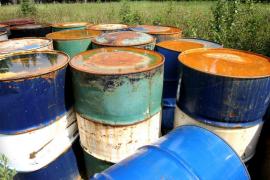
(istock photo by Don Wilkie)
An EFFACE workshop on "Instruments, actors and institutions in the fight against environmental crime" was held in Berlin on 21 January 2014. The goal of the gathering was to develop a better understanding of the scope and success of approaches on combating environmental crime at various levels: national, EU and international. Research experts in the field of environmental crime, scientists and enforcement officials representing institutions at all these levels pooled their expertise to develop recommendations on how the EU could combat environmental crime more effectively.
National-level action
Germany and Italy served as examples of national level action to address practical problems including lack of cooperation between administrative authorities and the criminal prosecution system, fragmentation of legal norms, and a large numbers of actors dealing with environmental offences.
In addition, a lack of specialized bodies and resulting lack of expertise as well as the complexity of environmental crime cases result in cases being given lower priority in the criminal justice system, according to experts.
EU action
Focusing on the EU level made it clear that throughout Europe, environmental crimes are sanctioned with low fines, if at all. The EU's environmental crime directive does not prescribe a certain level of sanctions; the sanctioning practice in EU Member States widely differs and so does the interpretation of central legal terms. For achieving more uniformity, experts stressed the value of horizontal networks among police authorities, prosecution offices.
International action
The international level session dealt with contributions of the numerous UN institutions in fighting aspects of transnational environmental crime (UNODC, CITES, FAO, UNIDCO, INTERPOL, UNEP, among others). As a result of the number of actors, problems exist with data exchange – not all institutions provide easy access to their data to others or the public. The need for a global reach of rules on environmental crime was emphasised, in order to avoid organized crimes to relocate to areas with weaker legislation, enforcement and institutions.
After discussion sessions, workshop participants provided recommendations for the national, EU and international level to be used in the overall mission of the EFFACE project.
Join the ongoing discussion and see recent news on environmental crime on our EFFACE forum.









